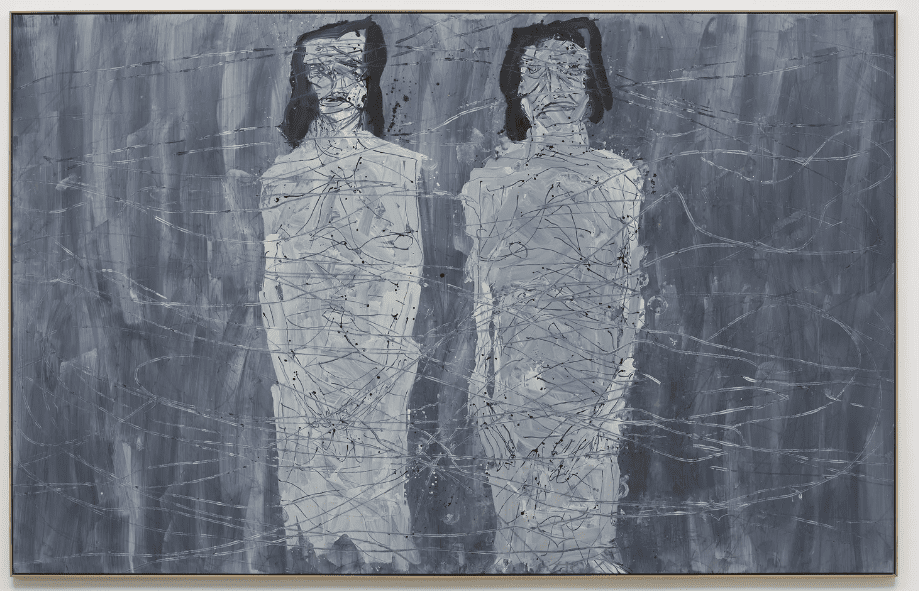Pity the middle classes.
Despised and reviled most vehemently by themselves, condemned by popular opinion to the dull political and personal flabbiness of the middle – in class, in attitude, in income. When the middle class is called upon to be depicted, it is in the hand-wringing late-thirties ambivalence of the moral crusader whose indignance is no longer matched by their energy.
Small victories map out the territory – asking a smoker to stub out their cigarette in a non-smoking area; confronting a rogue putting recyclables into the organic matter bin; telling a hoodie to turn down the music emanating from his mobile phone. First world problems, first world reactions depicted in comedy memes and the arch one-liners of stand-up comedians. Ridiculed in faux-bonhomie by users of the phrase 'the pc brigade', or by the 'pc brigade' itself as casually fascist. No, the middle classes are not celebrated for their radicalism.
Ridiculed in faux-bonhomie by users of the phrase 'the pc brigade', or by the 'pc brigade' itself as casually fascist
What is middle class anyway? The lifestyle associated with the term usually takes two salaries to maintain. Such involves work, and surely those who work for a living are working class. Tony Blair's epithet about how we are all middle class now was simply a redefinition of terms, not a redistribution of wealth or status. The middle class does not know what it is, nor what it thinks. It is simply too large to be homogenous in attitude or outlook. It just wants things to be nice.
Where it all falls apart is in who or what arbitrates what is considered to be nice, and what actions should be taken when things stop being nice. Drop an unregulated variable into the social mores and things go pear-shaped quickly. This is an established and dominant stratum of society which has been honing its attitudes and responses since the apogee of colonial expansion coincided with industrialism, and suddenly made it possible for individuals without titles to escape the drudgery of hand-to-mouth existence.
Drop an unregulated variable into the social mores and things go pear-shaped quickly
Typically depicted now in lazy stereotypes of nimbyism and right-wing slippage; thickening midriffs and Parent Teacher Association rhetoric, historically the picture is different. Romantically symmetrical though it may be to picture the nature of British society as a generational struggle between the workers and their overlords, Britain is not Cuba. Only lately have the working classes had a political voice – the predominant shaping force of British life has been the interaction between the landowning aristocracy and the mercantile, mobile, middle classes.
Throw a wildcard into that centuries-old game and it's not surprising that the reaction is unstable, exaggerated, underconfident. A wildcard like a woman on a tram bursting into a vicious stream of racist invective. Dropped unexpectedly onto a computer screen in the otherwise sheltered environment of home or workplace, out of swinging reach, cut off from physical or verbal retaliation to any knee-jerk reactions a viewer may have.
What the video of the racist woman on the tram tells us, is not that there are people out there who are racist and intolerant. We knew that. Instead, it tells us that a lynchmob can be gathered, a witch-hunt mustered just as readily in the cause of liberalism and good, as it can be from the sectors of population more readily associated with the rallying call for summary 'justice' and punishment. 'Burn the witch', came up in the comments, arrest her, lock her up.
Burn the witch
Pick your side carefully. Vile though she was; depressed, damaged, drunk or simply a nasty sort, the reaction had little to do with genuine shock and awe at a stream of invective that, had it come from a different source, would have been treated with the derision it deserved. Rather, it was an opportunity to parade publically the niceness of one's own attitudes. Even if that involved calling for her death.
Emma West's comments? Had an obvious drunk said them, they would have been ignored. Had a mumbling vagrant said them, they would have been ignored. Had a man said them, even then, they may have been ignored. That they came from a well-groomed woman with a child on her lap – that was what turned that video viral.
The users of the social networks upon which the video was circulated were satisfied
Laws were broken, and West was arrested. The users of the social networks upon which the video was circulated were satisfied. Spread this video around, they'd called, let's make sure this woman is tracked down and arrested. And she was. Putrid as her opinions were, her right to say them was brushed aside by the competitively right-on commentators forming opinion on YouTube, Twitter and FaceBook. Never mind the legalities of broadcasting a child's face – which due process and democratic legislation, enshrined in UK law, has put out of bounds of the accountable broadcast media. YouTube spits on such clunking, slow concepts. Technology is exempt from such niceities – easier to ask forgiveness than permission.
Online social networks allowed users to voice their disgust without fear of retaliation, but with the reward of visible proof of their political adroitness being broadcast to an audience. And audiences do strange things to people. Very few of those calling for Emma West's arrest would have reacted similarly had they heard those racist opinions at a dinner party, or from their grandfather. But that's different, there is no audience there.
It's this type of bumbling middle-class hypocrisy that is most vehemently attacked in Sly and Reggie's Middle Class Dub (Vol. 2). It's swathed in humour and a disarmingly daddish approachability, but there is a sharpness to their observations of Chris Moyles crying crocodile tears on 'Children in Need' or in the crisis reaction to straitened times in 'Squeezed Middle': 'will we be able to afford the cleaner?'
under the well-trodden dub riddims, a core of well-observed political clarity
Sly and Reggie's oeuvre is disarmingly jokey and at times genuinely funny. There is though, under the well-trodden dub riddims, a core of well-observed political clarity. Dub was ever thus. Easy as it is to pick out the origins of the musical inspiration for the record (King Tubby, Lee Perry etc), there is the same faux-naive reasonableness in the lyrical content that was a hallmark of early Jamaican dub reggae. This was a format in which the prosaic celebration of 'roast fish and cornbread' could sit in Lee Perry's productions alongside the prophesies of Marcus Garvey quoted verbatim. The genre has always mixed the political with the absurd.
Sly and Reggie Vs The World (Middle Class Dub Volume Two) by Sly and Reggie
The dubs themselves are not state of the art examples of the technique. This is not Gang Gang Dance remixing King Midas Sound, or Autechre dubbing up The Bug. Instead they are the structure onto which the lyrics are dropped. Whilst Sly and Reggie clearly have an affection for dub reggae (the clue is in the name), their dining-room folk songs might just as easily have been sung to the strum of an acoustic guitar. One thing about dub though, is that it dispenses with the need for traditional verse-chorus song structure, allowing the producer to repeat a melodic hook over and over, or simply fill the space with sound effects. In Middle Class Dub (Vol. 2) it frees Sly and Reggie's lyrical meanderings to follow tangents, non-sequiteurs and passionate digressions.
You can't tell your mother in law to fuck off
'Bourgeois Balls-Up' charts the social disasters of a tedious family dinner. Unfortunately, as the chorus makes plain: 'You can't tell your mother in law to fuck off'. (Not unless you do it on YouTube.) Similarly, 'Bless the Redgraves', which takes the thespian Redgrave family as its subject matter, has little political motive other than to cheekily poke fun at the tendency to blathering hagiography within the British middle classes when seeking uncontroversial conversational ground. It's done with affection, as is all the album, but there are moments of backbone, of genuine protest which are all the more forceful when they come from a voice which is already established as trustworthy, chummy, 'one of us'.
What is lampooned on the album is not the middle class itself (depicted less as the nature of one's job as the level of affluence it affords and the attitudes associated with it). Sly and Reggie are unashamedly of the social stratum described. Rather than expect the weightiest section of British society to renounce their worldly possessions and somehow re-establish political credibility by dropping down a couple of tax brackets (traditional punk's great failure was that it deliberately alienated the affluent – a failing addressed most lucidly in Crass's 'It's The Greatest Working Class Ripoff' ), it is hypocrisy that is most despised on Middle Class Dub (Vol. 2).
The instantly recognized domesticity of the setting is the strength of the set-up. Against the background of the Archers theme tune (on opening track 'Radio Four') or the cheeky quip of 'Alan Bennett's writing a play about it' on 'Bourgeois Balls Up', the sudden lashes of protest are all the more stark. It's easy to be fooled into thinking that because the record is fun, and that it is couched in the imagery of comfortable suburbanity, that it is safe.
salt-of-the-earth Scargill types
We are more used to protest songs coming from the studiously crusty or the salt-of-the-earth Scargill types. But, as is made clear in the self-evidently themed 'We Love Libraries', the need for effectively manifested dissent is no longer the sole preserve of the disenfranchised. Institutions cherished by all but the highest echelons of British society are threatened by its current government, and it's time that they were opposed.
Nowhere is that call to action made more plainly than in 'Arab Spring'. Set against a looped sample of John Farnham's 'You're the Voice' (and it is a curiously satisfying soundbed), the song starts out as an admiration of the events in Egypt last spring, mutates into a call for public demonstration closer to home, and then, quietly, to an acknowledgement that in effective, prolonged protest: 'People will die, people's bones will be broken, but overall the people will win if they keep at it'.
One inevitable criticism is that the subject matter is so specific than in some cases it has been overtaken by actual events. Sly and Reggie call upon their fellow middle-classers to throw off apathy, to get up and protest against the decline. Public sector strikes last week and the Occupy movement both count as instances where great swathes of the middle class public did just that. There are many more fights to be fought, and presumably Sly and Reggie will be happy to have their calls to action proved obsolete. The album is gloriously silly, often funny, ostensibly meek and muddled. Hidden in that though, is a righteous anger and frustration that is as solid and burning as on any Crass or Dead Kennedys release, and infinitely more use than a squealing plea on YouTube to identify and arrest a squalid bigot.
On release today. iTunes link

An observer first and foremost, Sean Keenan takes what he sees and forges words from the pictures. Media, critique, exuberant analysis and occasional remorse.














